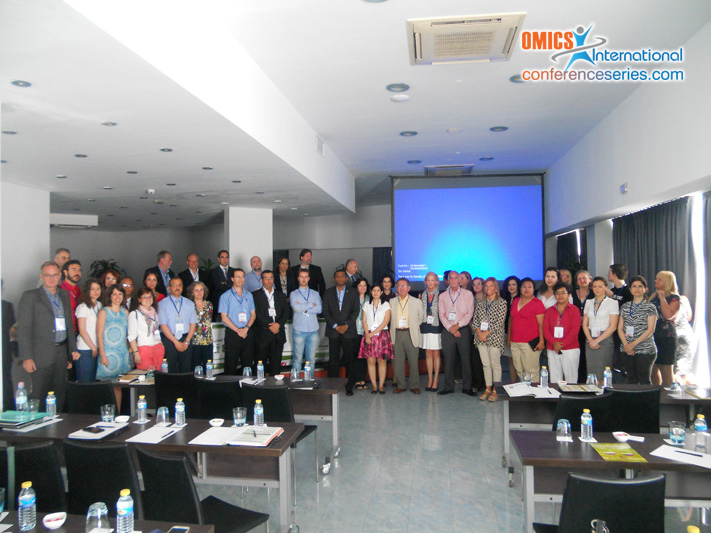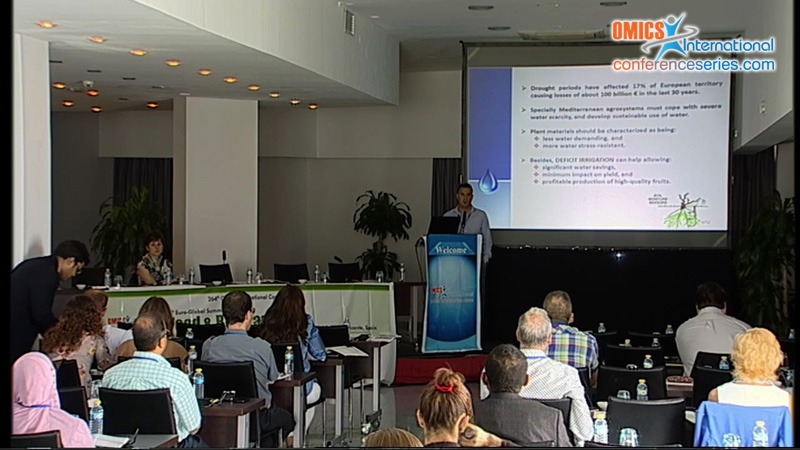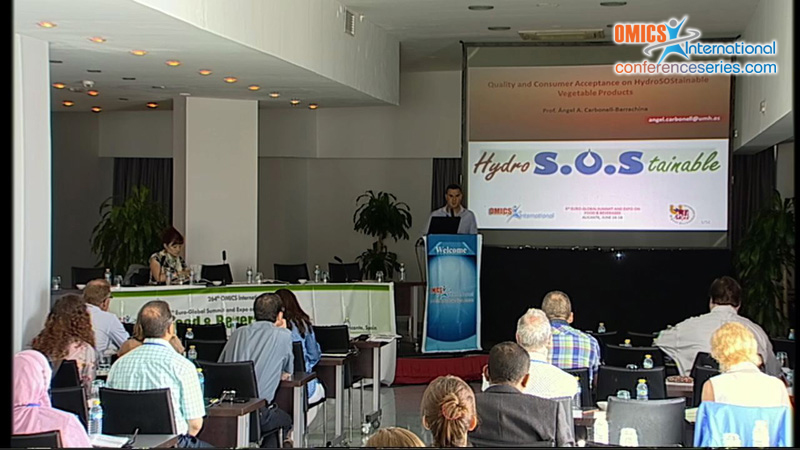
Ãngel Carbonell Barrachina
Universidad Miguel Hernandez de Elche
Spain
Title: Quality and consumer acceptance on hydrosostainable vegetable products
Biography
Biography: Ãngel Carbonell Barrachina
Abstract
Regulated deficit irrigation (RDI) allows us to decrease the amount of water to apply without significantly affecting yield and fruit quality. The influence of 3 irrigation treatments [T0: control (no stress); T1: moderate stress during pit hardening; and, T2: low stress at the end of flowering stage and moderate during pit hardening) on the quality of table olives, cv. “Manzanilla”, was evaluated. The parameters evaluated in table olives (after processing) were: weight, size, texture, color, fatty acids, volatile compounds and sensory quality. T1 olives had the highest weight and size, and were rounded. Color coordinates L* and b* had the highest values in T2 olives. Aldehydes and monounsaturated fatty acids predominated in T0 olive fruits, while terpenes and polyunsaturated fatty acids predominated in T1 fruits, and finally saturated fatty acids were abundant in T2 olives. Finally, the results of sensory studies indicated that global acceptance was higher for T1 olive, obtaining better satisfaction degrees for fresh olive flavor, crunchiness, and global satisfaction. Deficit irrigation is effective and can be a good alternative for this type of crop, “Manzanilla” table olives.
Speaker Presentations
Speaker PDFs
Speaker PPTs Click Here




